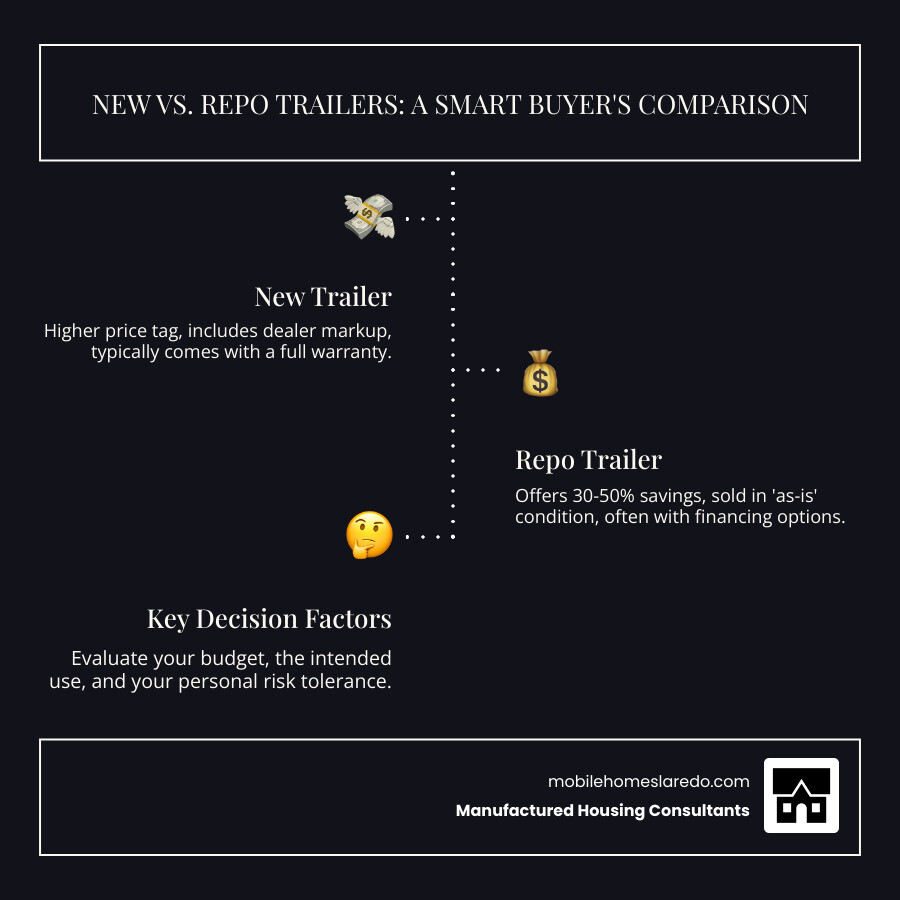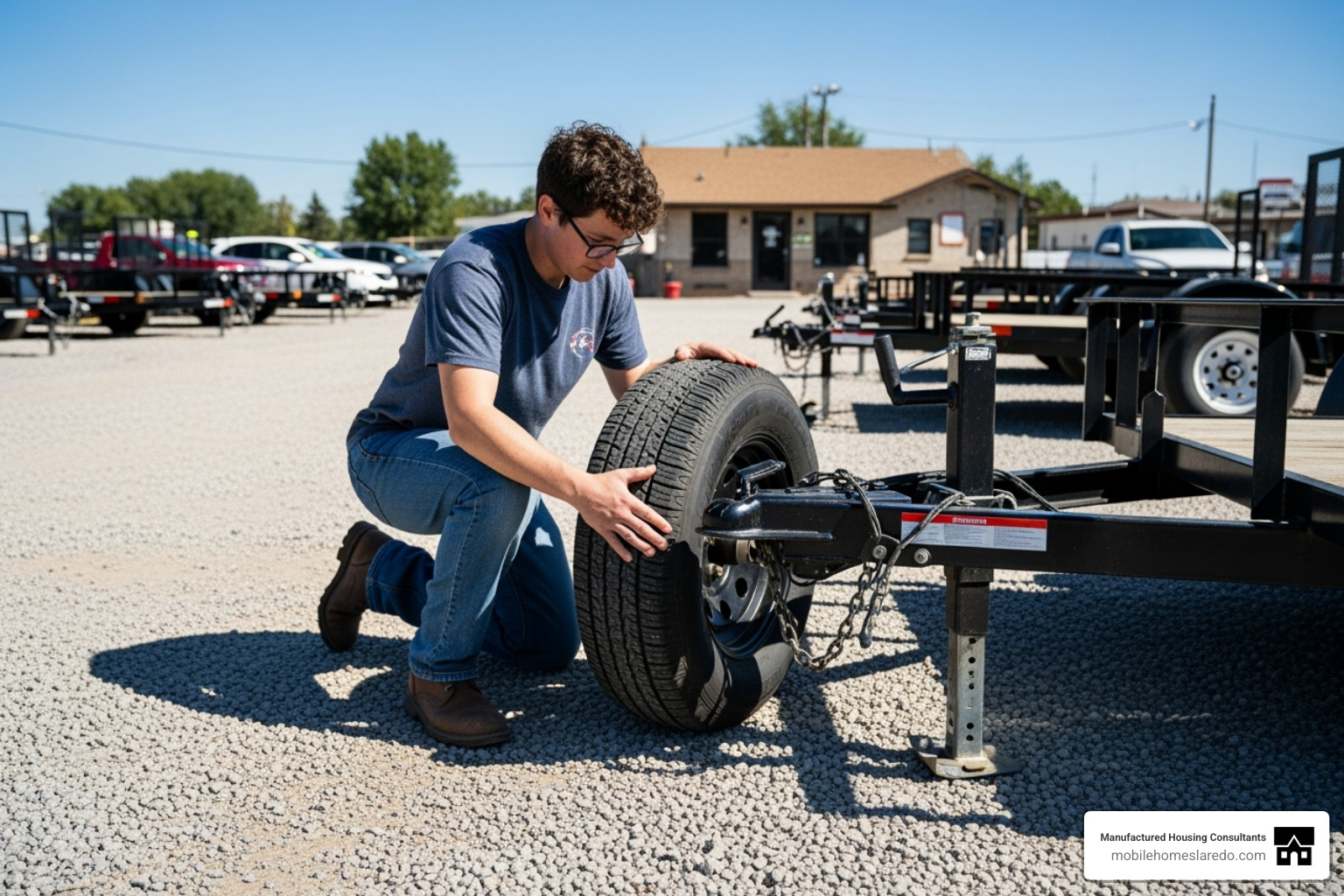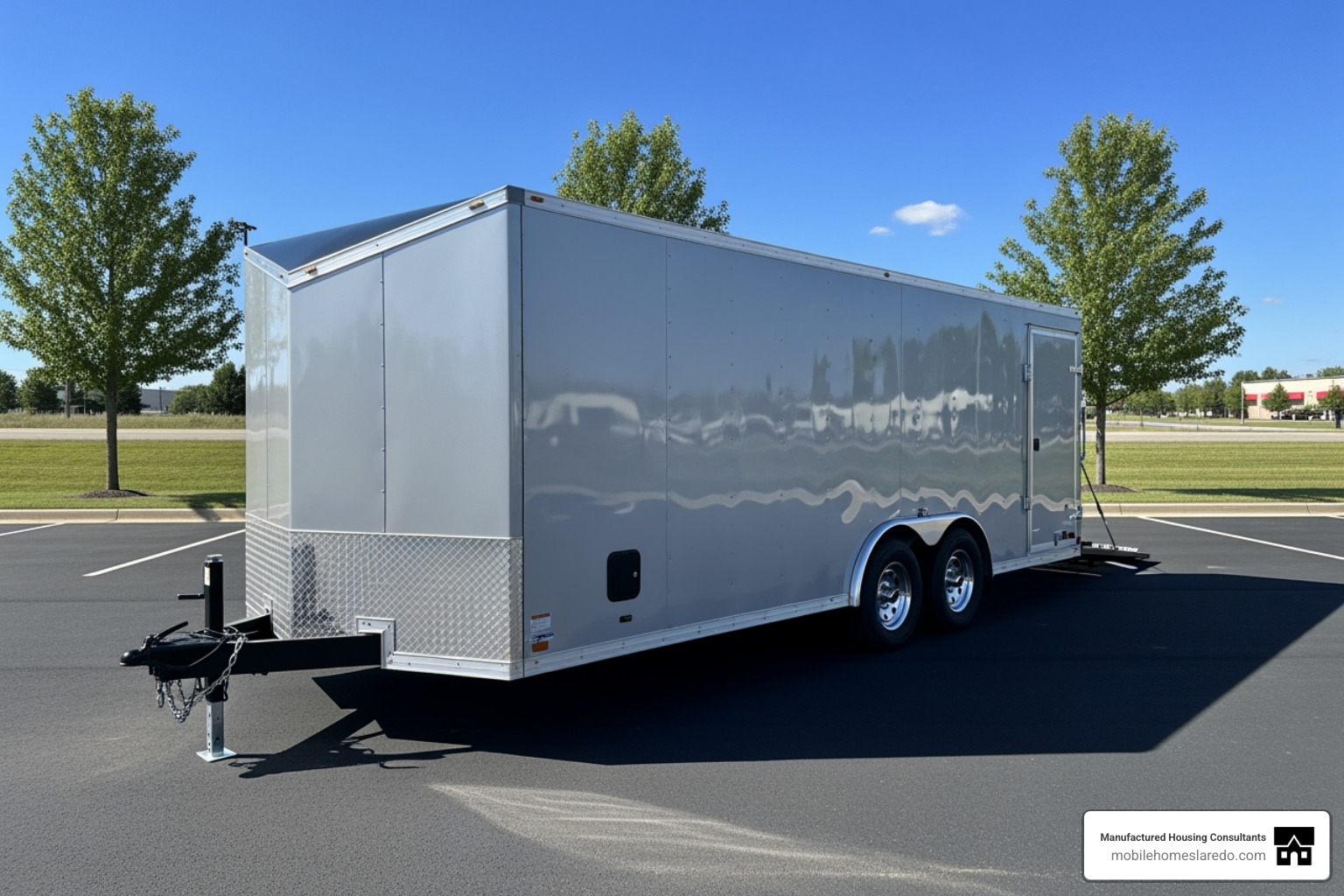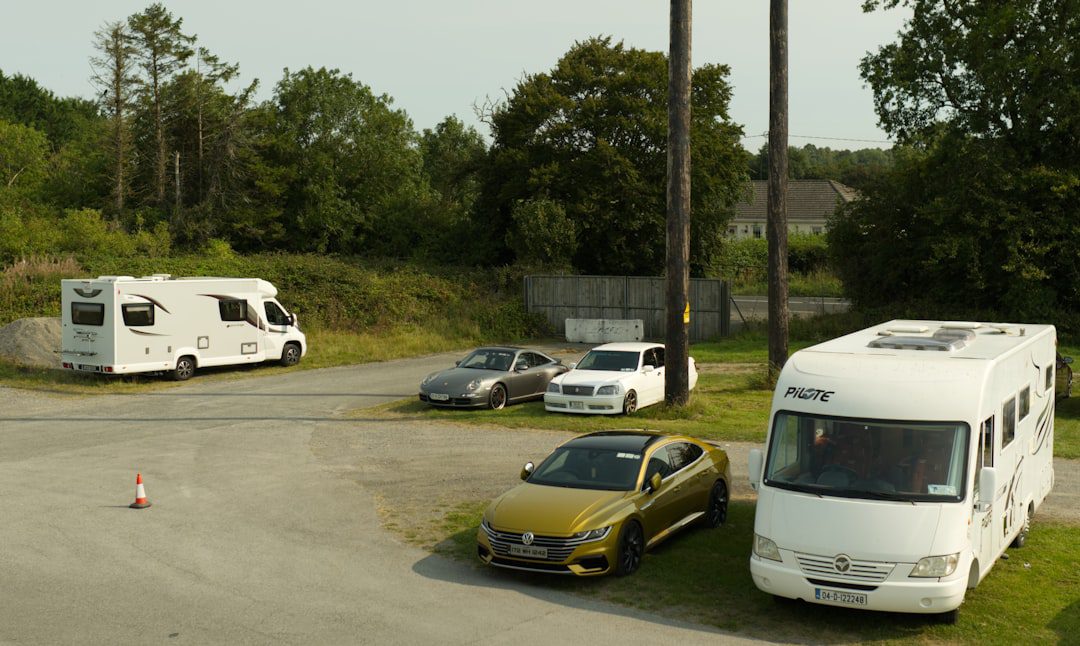What Are Repo Trailers and Why Buy One?
Repo trailers in my area are repossessed trailers sold by lenders after borrowers default on loans. These trailers offer significant savings compared to buying new—often 30-50% less—making them an attractive option for budget-conscious buyers in Texas.
Quick Answer: Finding Repo Trailers Near You
- Where to find them: Banks, credit unions, specialized repo dealers, government surplus auctions (like GovDeals), and online auction platforms
- What you’ll save: Typically 30-50% off new trailer prices
- Types available: Utility trailers, enclosed cargo, car haulers, dump trailers, flatbed, and gooseneck trailers
- Price range: From $3,000 for basic utility trailers to $30,000+ for larger equipment haulers
- Key consideration: All repo trailers should be thoroughly inspected before purchase as they are sold “as-is”
While buying a repossessed trailer can seem daunting due to concerns about hidden damage or paperwork, it’s a straightforward opportunity. Repo trailers are simply pre-owned trailers that banks need to sell quickly, creating value for savvy buyers.
Thousands of trailers are available across North America at any time, with inventories changing weekly. The key is knowing where to look and what to inspect.
This guide covers finding sources, professional inspection, handling paperwork, and securing financing, even with imperfect credit.

Your Step-by-Step Guide to Finding Repo Trailers in My Area
This guide provides a roadmap to finding, inspecting, and buying a repo trailer in my area. Securing a great deal isn’t complicated once you know where to look and what to check.

Where to Look for repo trailers in my area
Repo trailers aren’t on typical dealer lots. You need to look in specific places.
Banks and credit unions sell repossessed trailers to recover funds. Check the “other assets for sale” sections on their websites or call their loan departments. Their motivation to sell works in your favor.
Specialized repo dealers buy trailers in bulk from lenders. They may charge slightly more, but they offer convenience, more information, and sometimes financing options.
Online auction platforms like Find deals on government surplus, GovDeals, and Liquidation.com list thousands of repo trailers. While competitive bidding can increase prices, they are still significantly cheaper than new.
Local classifieds and online marketplaces like Facebook Marketplace and Craigslist also list repo trailers. Exercise caution: always verify the seller’s legitimacy and meet in a safe, public location.
The Smart Buyer’s Inspection Checklist
Repo trailers are sold “as-is,” so a thorough inspection is crucial. What you see is what you get.
- Frame Integrity: Check the trailer’s backbone for bends, cracks, or severe rust, especially at welds. A compromised frame is a major safety hazard.
- Axle Condition: Look for bent axles, which indicate overloading. Wheels should track straight. Grease leakage around hubs signals bearing problems.
- Tire Wear: Uneven wear suggests alignment, axle, or suspension issues. Check tread depth and look for sidewall cracks. Don’t forget the spare.
- Brake Functionality: If equipped, test electric or hydraulic brakes. Look for worn pads, seized calipers, or leaks. Ensure the brake-away system works.
- Electrical Systems: Test all lights—running, brake, and turn signals. Check wiring for fraying, exposed wires, or rodent damage.
- Floorboards and Walls (Enclosed Trailers): Press on the floor to find soft spots from water damage. Check walls and the roof for holes or dents. Ensure doors latch securely.
- Coupler and Jack: The coupler should be free of cracks and latch securely. The tongue jack should raise and lower smoothly.
- Ramps and Gates: Check that hinges are solid and latches work smoothly. Look for significant bends or cracks.
- Title and VIN: The VIN on the trailer must match the title. Run a VIN check for accidents, liens, or theft records to avoid legal problems.
- Normal Wear vs. Damage: Distinguish between cosmetic issues (scratches, faded paint) and deal-breakers like structural damage or extensive rust.
If you’re not confident, bring a mechanic or a knowledgeable friend. An expert eye can spot problems you might miss.
Understanding the Buying Process and Paperwork
The buying process varies by seller, but some steps are universal.
- Auctions: Register beforehand and understand all terms: buyer’s premiums, payment deadlines (often 24-48 hours), and pickup rules. Missing a deadline can mean forfeiting your deposit.
- Direct Purchases: Buying from dealers or banks is more straightforward, with a fixed asking price that may be negotiable.
- Title Transfer: A clear title is essential for registration. Ensure the seller provides a properly endorsed title free of any liens.
- Bill of Sale: Get a detailed bill of sale with buyer/seller names, trailer details (make, model, VIN), price, date, and an “as-is” statement, signed by both parties.
- Registration: Requirements vary by state but generally include the title, bill of sale, and ID. Texas has specific rules, so check with your local DMV before you buy.
For more on the general process, Learn about purchasing repossessed assets.
How to Finance repo trailers in my area
Financing a repo trailer can be tricky, but options exist.
- Your Bank or Credit Union: Start here for a personal or secured loan. An existing relationship can help your application.
- Specialized Trailer Dealers: Repo dealers may offer in-house financing or have partnerships with lenders familiar with the used equipment market.
- Personal Loans: An unsecured personal loan from a bank or online lender is another option, though interest rates may be higher.
- Credit Score: A higher score means better rates. If your credit is imperfect, work on improving it, find a co-signer, or seek lenders who specialize in challenging credit situations.
- Pre-Approval: Getting pre-approved for a loan shows sellers you’re a serious buyer and strengthens your negotiating position.
Many of these principles also apply to larger purchases. You can explore financing for bank repos to understand the process for properties.
At Manufactured Housing Consultants, we help Texas customers finance manufactured, modular, and tiny homes. We work with all credit types and offer a FICO Score Improvement Program. While we focus on homes, we understand the challenges of financing repossessed assets.
What to Expect: Types, Prices, and Final Tips
Now that you know how to find and inspect a repo trailer in my area, let’s cover the types of trailers available and what you can expect to pay. Understanding the market helps you spot a true bargain.

Common Types of Repo Trailers on the Market
The repo market is diverse, so you can likely find a trailer that fits your needs.
- Utility trailers: The most common type, used for hauling everything from lawn equipment to furniture. They are perfect for ATVs, motorcycles, or general hauling. For example, a 2012 Canada Trailers 5×8 utility trailer was priced at $3,588.
- Enclosed cargo trailers: These protect contents from weather and theft, making them popular with contractors. A V-nose design reduces wind resistance. We’ve seen a 2026 Haulin 6×12 V-Nose for $7,395.
- Car haulers: Specialized for transporting vehicles, these can be open or enclosed and often feature ramps and winches. A 2026 Excalibur 8.5×24 HD 10K enclosed car hauler was listed at $17,795.
- Dump trailers: Valued by contractors and landscapers, their hydraulic lift system saves significant time and labor. Their specialized equipment commands higher prices.
- Flatbed and Gooseneck trailers: Flatbeds are versatile for large or irregular items. Gooseneck trailers connect to a hitch in the truck bed for superior stability with heavy loads. A 2024 8.5×40 gooseneck 14K trailer was priced at $20,995.
Common brands include Weberlane, Mayhem Trailers, Haulin, Excalibur, Bravo Trailers, Canada Trailers, PJ Trailer, Aluma, Big Tex, and Lamar. Inventory changes constantly, so check back often.
Typical Price Ranges and Getting the Best Value
Buying a repo trailer in my area can save you 30-50% compared to new—a savings of thousands of dollars.
- Utility Trailers: New: $2,000-$6,000 | Repo: $1,000-$4,000
- Enclosed Cargo Trailers: New: $5,000-$12,000 | Repo: $3,000-$8,000
- Car Haulers: New: $4,000-$15,000 | Repo: $2,500-$10,000
- Dump Trailers: New: $8,000-$25,000 | Repo: $5,000-$18,000
- Gooseneck Trailers: New: $15,000-$40,000+ | Repo: $9,000-$30,000+
Price is influenced by condition, age, type, and features. A well-maintained trailer costs more than one needing repairs. Location also matters, as regional demand affects pricing. Finally, the seller makes a difference; banks price to sell quickly, while dealers may charge more but offer additional services.
For negotiations, research local prices for similar trailers. Use any flaws found during inspection to justify a lower offer. Be prepared to walk away if the price isn’t right. Having financing pre-approved shows you’re a serious buyer and can be a powerful bargaining chip. A well-maintained repo trailer can be a valuable asset for years, even with minor initial repairs.
The same principles of smart buying apply to other repossessed assets. You can Discover more about repossessed homes and see how these opportunities extend to housing.
Ready to explore more repossessed opportunities?
If you’re considering a larger investment like a repossessed mobile, manufactured, or tiny home, we’re here to help. At Manufactured Housing Consultants, we specialize in offering affordable housing solutions in Texas, with guaranteed lowest prices and flexible financing options for all credit types, including our FICO Score Improvement Program.
For more information on repossessed mobile homes and financing options, visit our dedicated guide.

